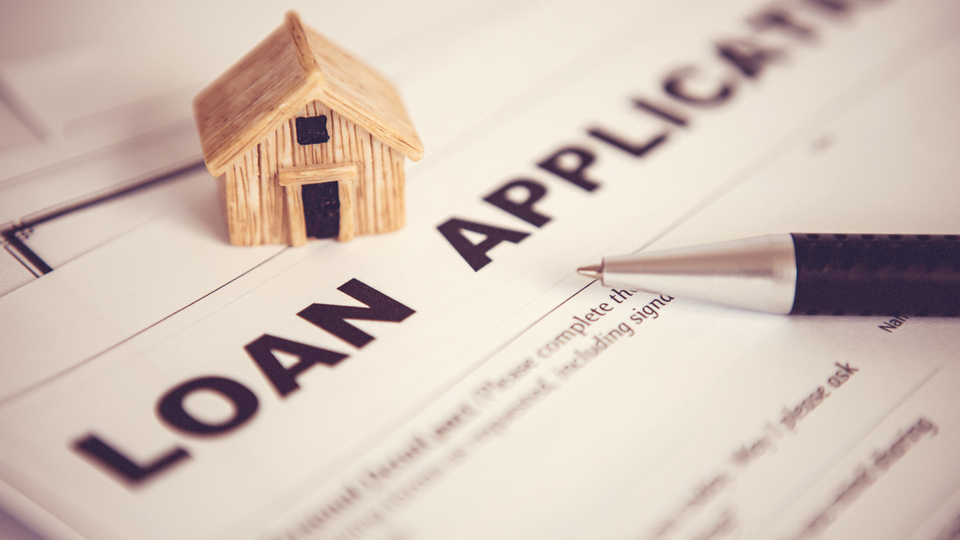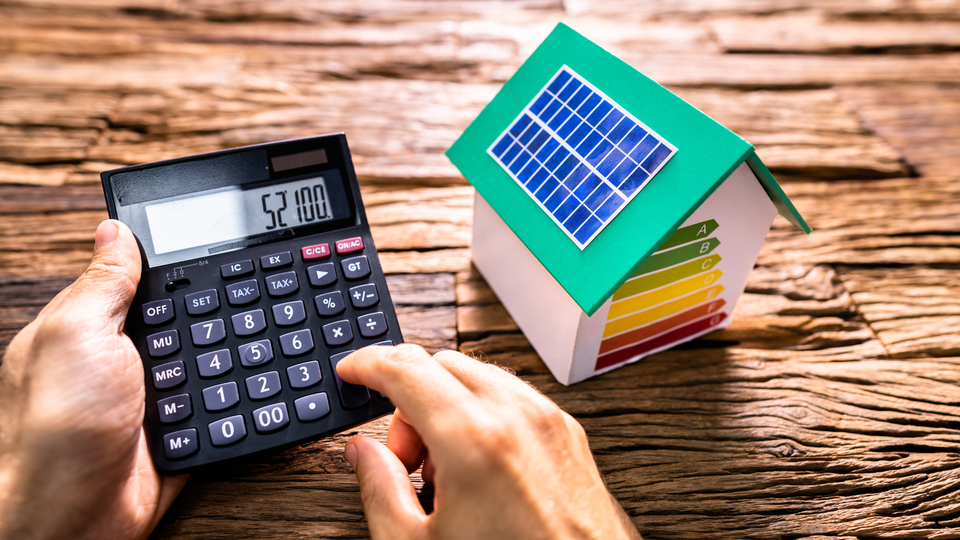

Introduction
Owning a home comes with a responsibility to maintain its structural integrity. While a roof may seem out of sight and out of mind, neglecting its upkeep can lead to costly repairs and even endanger your safety. In this article, we will explore why roof replacement is crucial, the costs involved, and various financing options to help you manage this important home improvement project.
Why Roof Replacement Matters
A well-maintained roof is crucial for any home. It provides protection from weather elements and enhances the aesthetic appeal of your house. Neglecting roof maintenance or replacement can lead to severe issues like leaks, mold growth, and structural damage.
Whether you're dealing with an aging roof or unexpected damage, understanding your options and planning accordingly can make the process more manageable and less stressful.
Quick Tip: Regular roof inspections can help you spot minor issues before they become significant problems
Whether you're dealing with an aging roof or unexpected damage, understanding your options and planning accordingly can make the process more manageable and less stressful.
Quick Tip: Regular roof inspections can help you spot minor issues before they become significant problems

Understanding Roof Replacement Costs
The cost of a new roof varies depending on several factors, including the type of materials used, the size of the roof, and labor costs. On average, homeowners can expect to spend between $5,000 and $25,000 on a roof replacement.
Material Cost
Different roofing materials come with varying price tags. Asphalt shingles are generally the most affordable option, while metal, tile, and slate roofs can be considerably more expensive.
Labor Costs
Labor costs can vary based on the complexity of the job and the contractor's rates. Getting multiple quotes is crucial to ensure you're getting a fair price.
Unexpected Expense
Always budget for unexpected expenses. These can include:
- Removal of the old roof
- Repairing underlying structures
- Permit fees
Did You Know? Some states offer tax credits or rebates for energy-efficient roofing materials. Be sure to research what incentives are available in your area.

Budgeting for a New Roof
Effective budgeting is essential for managing the costs associated with a roof replacement.
Here are some steps to help you create a realistic budget
Here are some steps to help you create a realistic budget
Step 1: Get Multiple Quote
Reach out to several contractors to get detailed quotes. This will give you a better understanding of the average cost and help you identify any outliers
Step 2: Factor in All Costs
Include material costs and labor in your budget. Remember, it's better to overestimate than underestimate.
Step 3: Explore Financing Options
Consider different roof financing options to spread the cost over time. This will make the expense more manageable. Additionally, be sure to review the financing terms carefully. Ensure you thoroughly understand the interest rates, repayment terms, and fees of your chosen financing option.
Step 4: Set Aside Contingency Funds
Even with a well-planned budget, unexpected expenses can still arise. Set aside an additional 10-20% of your total budget as a contingency fund to cover any unforeseen costs.
By following these steps and doing thorough research, you can create a realistic budget to ensure your new roof will be within your financial means. Remember, investing in a quality roof can save you money on repairs and maintenance in the long run
By following these steps and doing thorough research, you can create a realistic budget to ensure your new roof will be within your financial means. Remember, investing in a quality roof can save you money on repairs and maintenance in the long run
7 Leading Roof Financing Options
Several options are available when it comes to financing your new roof. Below are seven leading roof financing options to consider

Personal Loans
Personal loans from banks or credit unions can be used for roof replacement. They often have higher interest rates than home equity loans but don't require using your home as collateral.
They are usually unsecured, so approval depends on your credit score and income. The interest rates can be higher, but they offer quick access to funds.
Pros:
They are usually unsecured, so approval depends on your credit score and income. The interest rates can be higher, but they offer quick access to funds.
Pros:
- Quick approval process
- No need for collateral
Cons:
- Higher interest rates
- Shorter repayment terms
Quick Tip: Check your credit score before applying for any loan to understand what interest rates you might qualify for.
Home Equity Loan
A home equity loan allows you to borrow against the equity you've built up in your home. They often come with lower interest rates compared to personal loans.
These loans are popular due to their fixed rates and tax-deductible interest. However, they require substantial home equity and can put your home at risk if you default.
Pros:
These loans are popular due to their fixed rates and tax-deductible interest. However, they require substantial home equity and can put your home at risk if you default.
Pros:
- Lower interest rates
-
Potential tax benefits
Cons:
- Requires sufficient home equity
- Longer approval process

Credit Cards
A credit card for roof financing can be convenient, especially for the minor expenses. However, this option should be cautiously approached due to high interest rates. If you can pay off the balance quickly, this may be an option to consider.
Pros:
Pros:
- Quick access to funds
-
Rewards and cashback options
Cons:
- High interest rates
- Potential for excessive debt
Homeowners Insurance Claims
If your roof is damaged by a covered peril, such as a severe storm or fire, your homeowner's insurance policy may cover the cost of repairs or replacement. However, it's important to carefully review your policy to understand what is covered and any deductible that will need to be met.
Pros:
Pros:
- Potentially no out-of-pocket costs
-
Coverage for unexpected damage
Cons:
- Claims process can be lengthy
- It may not cover all damages

Federal Housing Administration (FHA) Loans
FHA loans, specifically the Title I Property Improvement Loan, can be used for roof replacements. The federal government backs these loans, which have more flexible requirements and lower interest rates than traditional loans. This makes them a favorable option for those with less-than-perfect credit.
Pros:
Pros:
- Flexible requirements
-
Lower interest rates
Cons:
- Limited loan amounts
- Property restrictions
Government Programs
In addition to FHA loans, various government programs offer financial assistance for roof replacements. For example, the Department of Energy Weatherization Assistance Program provides grants for low-income households to make energy-efficient improvements to their homes, including roofing upgrades.
Pros:
Pros:
- Lower interest rates
- Accessible to homeowners with lower credit scores
Cons:
- Limited availability
- Lengthy approval process
Quick Tip: Research local and state government programs in your area that may offer financial assistance for roof replacements.

Roofing Company Financing
Many roofing companies offer financing plans to help homeowners manage the cost of roof replacements. These plans can be tailored to your needs. Some may offer low or even 0% interest rates for a certain period of time, while others may have flexible payment plans.
Pros:
Pros:
- Convenient and integrated with the roofing service
-
Quick approval process
Cons:
- May have higher interest rates after the promotional period ends
- Limited to specific roofing companies
Exploring New Roof Financing Options
The financing landscape is evolving, and there are new roof financing options you might not be aware of. These options can offer innovative ways to fund your roof replacement.
PACE Financing
Property Assessed Clean Energy (PACE) financing allows homeowners to finance energy-efficient home improvements, including roofing. Repayment is made through property taxes, spreading the cost over many years.

Solar Loans
Solar loans can be an option if you're considering installing solar panels on top of your new roof. These loans can cover the costs of both the roofing and solar panel installation.

Crowdfunding
Crowdfunding platforms can be a way to raise money for your roof replacement. While unconventional, it's an option for those with a strong community network. This option can raise awareness of your roofing needs and potentially attract local support.
Manufacturer Financing
Some roofing material manufacturers offer financing directly to consumers. These plans can be attractive due to lower interest rates and terms tailored to their products. However, you may be limited to a specific brand or type of roofing material.

How to Choose: The Best Roof Replacement Financing Options for You
Choosing the best financing option for your roof replacement involves carefully considering several factors. Here's how to make an informed choice:
Assess Your Financial Situation
Look at your current financial health. Consider your income, existing debts, and credit score. This assessment will help you understand what financing options you qualify for and can afford.
Compare Interest Rates and Terms
Different financing options come with varying interest rates and repayment terms. Compare these aspects across different lenders to find the most favorable terms.
Consider Flexibility
If you anticipate needing more flexibility, an option like PACE financing might be more suitable. These allow you to borrow as required and repay over an extended period.
Factor in Approval Time
Some financing options have a quicker approval process than others. If time is of the essence, you might prefer a personal loan or roofing company financing, which is faster.
Evaluate Risk
Understand the risk associated with each option. For example, home equity loans use your home as collateral, which means you could lose your home if you default.
Seek Professional Advice
Sometimes, the best course of action is to consult with a financial advisor. They can provide personalized advice based on your financial situation and goals.
FAQs
Q: What is the best financing option for a roof replacement?
A: The best financing option depends on your financial situation and preferences. Home equity loans often offer lower interest rates, but personal loans provide quicker access to funds without using your home as collateral. Consult with a financial advisor to determine which option is best for you.
Q: Can I use my credit card to finance my roof replacement?
A: While using a credit card for roof replacement expenses is possible, it's usually not recommended due to high interest rates. Credit cards should be considered only if you can pay off the balance quickly or have a card with a promotional 0% APR for a set period.
Q: How long does it take to get approved for a home equity loan?
A: Approval times for home equity loans can vary. Generally, depending on the lender and your financial situation, it can take anywhere from two to six weeks. Personal loans often have faster approval times, typically ranging from a few days to a week.
Q: What if I can't afford to replace my roof right now?
A: If a complete roof replacement isn't financially feasible, consider temporary repairs or partial replacements to address the most critical issues. Additionally, some contractors may offer financing plans or payment options to help spread the cost over time.
Q: Will financing a roof replacement affect my credit score?
A: Due to hard inquiries, applying for a loan may temporarily affect your credit score. However, making timely payments on your loan can positively impact your credit score in the long run. Be sure to understand the terms of your financing agreement and budget accordingly to avoid missed payments.
A: The best financing option depends on your financial situation and preferences. Home equity loans often offer lower interest rates, but personal loans provide quicker access to funds without using your home as collateral. Consult with a financial advisor to determine which option is best for you.
Q: Can I use my credit card to finance my roof replacement?
A: While using a credit card for roof replacement expenses is possible, it's usually not recommended due to high interest rates. Credit cards should be considered only if you can pay off the balance quickly or have a card with a promotional 0% APR for a set period.
Q: How long does it take to get approved for a home equity loan?
A: Approval times for home equity loans can vary. Generally, depending on the lender and your financial situation, it can take anywhere from two to six weeks. Personal loans often have faster approval times, typically ranging from a few days to a week.
Q: What if I can't afford to replace my roof right now?
A: If a complete roof replacement isn't financially feasible, consider temporary repairs or partial replacements to address the most critical issues. Additionally, some contractors may offer financing plans or payment options to help spread the cost over time.
Q: Will financing a roof replacement affect my credit score?
A: Due to hard inquiries, applying for a loan may temporarily affect your credit score. However, making timely payments on your loan can positively impact your credit score in the long run. Be sure to understand the terms of your financing agreement and budget accordingly to avoid missed payments.
Conclusion
Replacing your roof is critical to your home's safety and value. Understanding the various roof replacement financing options can help you make an informed decision and manage costs effectively. Whether you opt for a personal loan, home equity loan, or another financing method, choosing the one that best suits your financial situation is essential.
Planning ahead and exploring your financing options ensures a smooth and cost-effective roof replacement process. If you're ready to embark on this vital home improvement project, start by researching and comparing the financing options discussed in this article. With the right approach and a solid financial plan, you can protect your home while staying within your budget.
Planning ahead and exploring your financing options ensures a smooth and cost-effective roof replacement process. If you're ready to embark on this vital home improvement project, start by researching and comparing the financing options discussed in this article. With the right approach and a solid financial plan, you can protect your home while staying within your budget.
